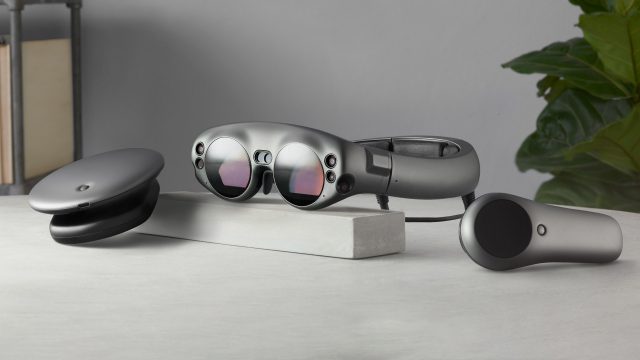In an interview today, Magic Leap CEO Rony Abovitz danced around questions regarding pricing of the forthcoming Magic Leap One AR headset, saying its pricing should be thought of like a “premium computer,” and that the company is likely to have multiple tiers of the headset to reach different segments.
Speaking on stage at the Code Media conference in Huntington Beach, CA today, Abovitz said that details on pricing and a more specific 2018 launch date for the Magic Leap One headset would be coming this Spring. While he wasn’t ready to pin down dates or pricing, he did give some hints, possibly confirming prior reports stating that the first headset would be priced around $1,000 or more.
“[Magic Leap One] is a premium computer, so I would think of [pricing] that way,” Abovitz said when pressed on pricing. He later said that, over time, the company expects to have multiple tiers of AR headsets. “Think of [Magic Leap One] as prosumer-ish, and then we’ll have even higher-end for, like, hyper-pro, and then we’ll have, like, [lower] wide mass market [tier].”
Asked if he would consider $200–$300 a “mass market” price, Abovitz quickly answered “no,” before elaborating. “I think Magic Leap is like… think higher-end mobile phone to higher-end tablet zone, [that’s] probably our [price] floor.”

When the interviewer then pointed to his $1,000 iPhone X as an example of a “high-end mobile phone”, Abovitz didn’t disagree with the comparison. He went on to justify the value proposition of the device.
“[…] the number of devices it’s potentially replacing… if you actually add all that up, at some point—we’re not saying for ML One […]—your phones, your televisions, your laptops, your tablets, that add up to thousands or tens of thousands of dollars, [they] all get virtualized,” Abovitz said. “So the economy of what we’re building can actually replace—not on day one, but over the next, let’s say, gen two / gen three—a whole suite of consumer electronics.”
Responding to the interviewer’s question about who the target audience is for the initial launch of Magic Leap One, Abovitz confirmed it will be open for sale to anyone from the outset.
“Magic Leap One, we call it Creator Edition, it’s [for] people who are enthusiasts developers, creators, brands, artists, partner; people that want to get an early taste of what the future looks like,” he said. “It’s not necessarily for everyone right away […] it’s not a dev kit in the sense that… we’re not blocking [anyone from buying it].”
You can watch the full interview from the Code Media conference here.







